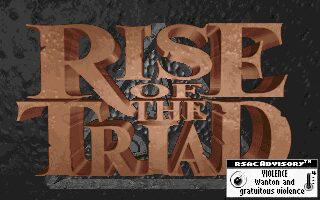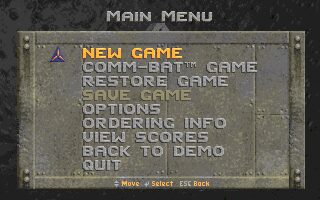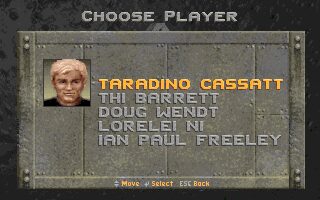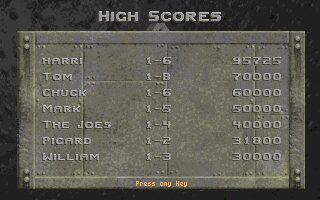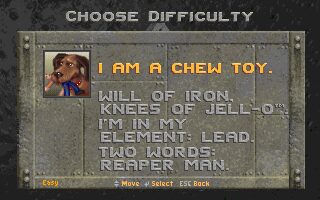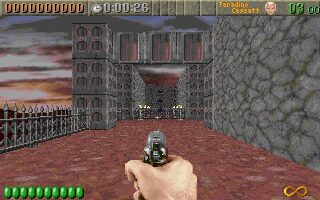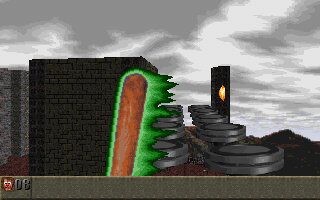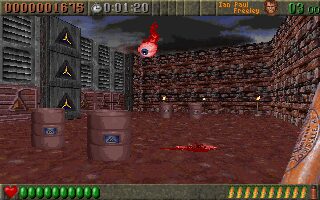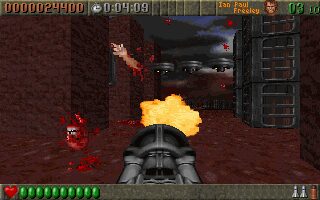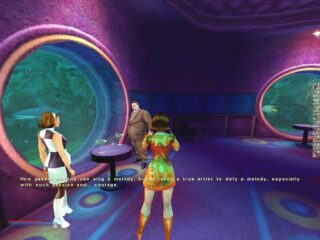Rise of the Triad: Dark War is a first-person shooter developed and published by Apogee Software in December 1994 for MS-DOS.
It is a fast-paced first-person shooter that stands as one of the most over-the-top and experimental entries of the Doom era. Originally conceived as a sequel to Wolfenstein 3D, the project morphed into a distinct game after id Software withdrew the rights. What remained was a strange hybrid of classic run-and-gun mechanics, wild design choices, and gleeful absurdity.
You play as a member of H.U.N.T. (High-risk United Nations Taskforce), sent to a remote island to stop a fanatical cult bent on world domination. You choose from several characters, each with slightly different stats, and dive into a sprawling maze of levels filled with cultists, traps, and power-ups.
Gameplay in Rise of the Triad feels like a chaotic evolution of Wolfenstein 3D—using the same grid-based movement system and 2.5D engine, but layering on innovations like jumping pads, destructible environments, dual-wielded weapons, and insane power-ups (like turning into a dog or entering “god mode” to shoot fireballs). The enemies are human, but cartoonishly exaggerated, screaming as they’re blasted apart in pixelated gibs. This gleeful violence earned the game a reputation for excess and controversy at the time.
Level design is full of verticality, which was unusual for shooters of the time, and includes puzzles, hidden rooms, and deadly traps. While the engine lacked true 3D capability like the one later used in Quake, the developers used clever tricks to give levels more complexity than what Doom or Wolfenstein 3D offered.
The soundtrack by Lee Jackson and Bobby Prince stands out as one of the game’s strongest features, mixing dark synths and industrial tones with pulsing action tracks. It matches the game’s chaotic tone and contributes significantly to its identity.
Rise of the Triad didn’t have the same lasting cultural impact as Doom or Quake, but it developed a cult following thanks to its unique style, innovative ideas, and unapologetic weirdness. It foreshadowed many later trends in FPS games: character selection, vertical gameplay, and creative weapons. In 2013, it even received a modern remake, a testament to its strange, enduring appeal. While not as polished as its contemporaries, Rise of the Triad is remembered as a bold, unhinged experiment that captured the anything-goes spirit of '90s PC gaming.

